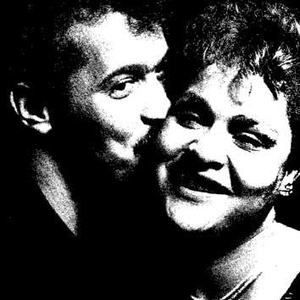
| Trackimage | Playbut | Trackname | Playbut | Trackname |
|---|---|---|---|---|
| 14649219 | Play | Mani | 04:07 Tools | |
| 14649220 | Play | N'Sel Fik | 07:07 Tools | |
| 14649222 | Play | La Verité | 04:19 Tools | |
| 52718495 | Play | Nsalfik | 04:19 Tools | |
| 52718496 | Play | RanDJouh | 04:19 Tools | |
| 14649221 | Play | La Vérité | 04:21 Tools | |
| 14649235 | Play | Mani (Algeria) | 04:02 Tools | |
| 14649226 | Play | / Mani | 00:00 Tools | |
| 52718497 | Play | N'Sel Fik (You are Mine) | 00:00 Tools | |
| 14649225 | Play | Manich Mana | 02:59 Tools | |
| 52718498 | Play | Ha Rai | 02:59 Tools | |
| 52718499 | Play | Wayala | 02:59 Tools | |
| 52718500 | Play | Hana Hana | 02:59 Tools | |
| 52718501 | Play | Mani -- Algeria | 02:59 Tools | |
| 52718502 | Play | Nsalfik - Chab Sahraoui & Fadela | 02:59 Tools | |
| 52718505 | Play | Ma Nesbarchi | 02:59 Tools | |
| 52718503 | Play | Walli | 02:59 Tools | |
| 52718506 | Play | Nghir-Menek | 02:59 Tools | |
| 52718504 | Play | Dance The Rai | 02:59 Tools | |
| 52718507 | Play | Hadek Mi Andi | 02:59 Tools | |
| 52718509 | Play | Hasni | 02:59 Tools | |
| 52718511 | Play | N'sel Fik (89 Mix) | 02:59 Tools | |
| 52718508 | Play | Ray Rayi | 02:59 Tools | |
| 52718510 | Play | Waadi [Just My Luck] | 02:59 Tools | |
| 52718513 | Play | Nes Jawak Alia | 02:59 Tools | |
| 52718512 | Play | Bab Wahran | 02:59 Tools | |
| 52718517 | Play | Dellali (My Lover) | 04:03 Tools | |
| 52718514 | Play | N´Sel Fik | 02:59 Tools | |
| 52718516 | Play | Bab Wahran (Door To Oran) | 04:03 Tools | |
| 52718515 | Play | Dellali [My Lover] | 02:59 Tools | |
| 14649229 | Play | Mani [Algeria] | 04:03 Tools | |
| 52718518 | Play | Dougih (Pound It) | 04:03 Tools | |
| 52718519 | Play | Dear As My Eyes | 04:03 Tools | |
| 52718520 | Play | Dawh (They Took Him Away) | 04:03 Tools |

-
- 26,380
- plays
-
- 10,073
- listners
-
- 26380
- top track count
Born in 1962 as Fadela Zalmat, Cheba Fadela grew up in a poor, formerly Jewish neighborhood, not far from the large city theater. At the age of fourteen, she played a role in the film "Djalti,” directed by Mohamed Ifticène and made her musical debut as a background singer in Boutiba S’ghir’s band. Her voice can also be heard on recordings by Rai singer Cheikha Djenia. Fadela’s nick name, "Remitti Sghira” (Little Remitti) followed as a result of the resemblance her potential career bore to that of famed Rai singer, Cheikha Remetti. In the late seventies, Cheba Fadela was discovered by the legendary Rai producer, Rachid Baba Ahmed. Ahmed’s modern 24 track studio in Tlemcen was the power house that produced Algerian Pop-Rai. With his help, Fadela became one of the first stars of the new musical sound that appealed to a frustrated generation of Algerians. Thanks to the inexpensive cassette tape, Pop-Rai quickly achieved wide distribution. In contrast to the traditional Rai of the "Cheikhs” and "Cheikhas,” which was popular at the turn of the century in the bars and brothels of Oran, the new generation of Rai singers gave themselves the surname of "Cheb” or "Cheba,” meaning "the young.” With the 1979 song "Ana Ma H’Lali Ennoun” (I don’t want to sleep), Fadela landed her first big hit. The recognition that she gained from that success catapulted her to even larger fame in 1983 with "N’Sel Fik” (You are mine), a song she recorded together with Mohammed Sahraoui. Their marriage immediately followed and the couple quickly became the dream pair of the Algerian music scene, always taking the stage together. Like many other Algerian Rai singers, they emigrated to France in the late 1980’s to pursue a European career. When the first "world music wave” began there, Cheba Fadela and Cheb Sahraoui were at the center of attention. Their residence in Europe spared them the first-hand experience of the bloody civil war that rocked Algeria in the nineties. An attack by radical Muslims took the life of Rai singer Cheb Hasni in September of 1994. Famed Pop-Rai producer, Rachid Baba Ahmed, was murdered by fanatics during the same time period. Unlike other stars of the Pop-Rai generation like Cheb Khaled, Cheba Fadela and Chab Sahraoui never achieved international success, largely because they relied too heavily on their success in Algeria. The couple separated both privately and professionally in the 1990’s. In 2001, Cheb Sahraoui reappeared with "Un homme libre,” an album that reflects the sound of modern French commercial music. Nothing noteworthy has been reported of Cheba Fadela in recent years. Author: Daniel Bax stiller@hkw.de Read more on Last.fm. User-contributed text is available under the Creative Commons By-SA License; additional terms may apply.